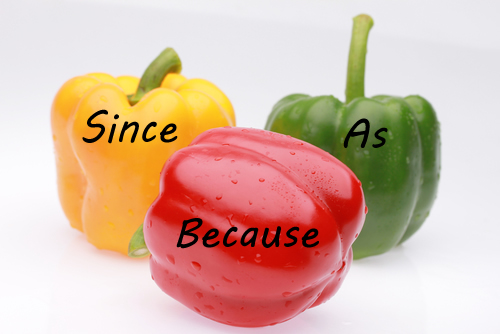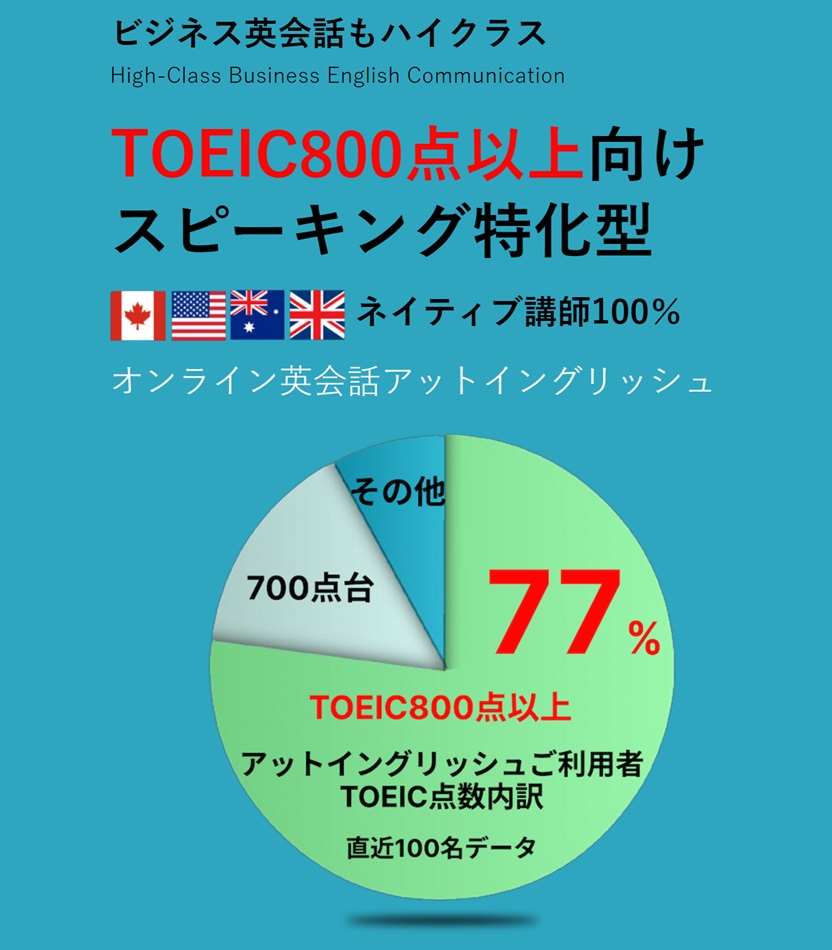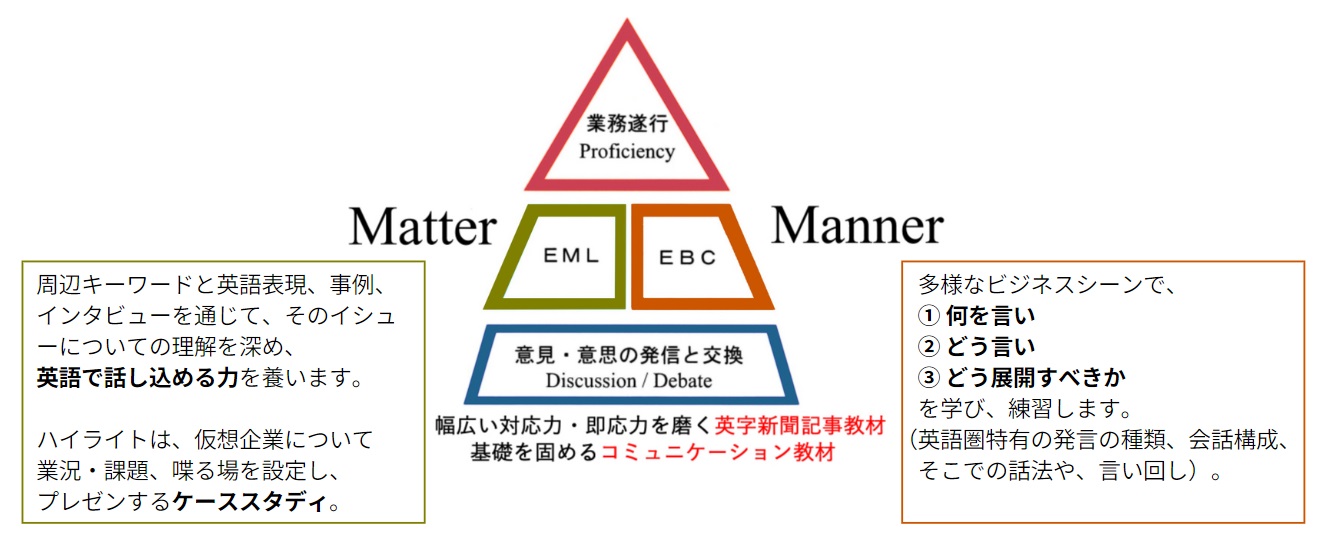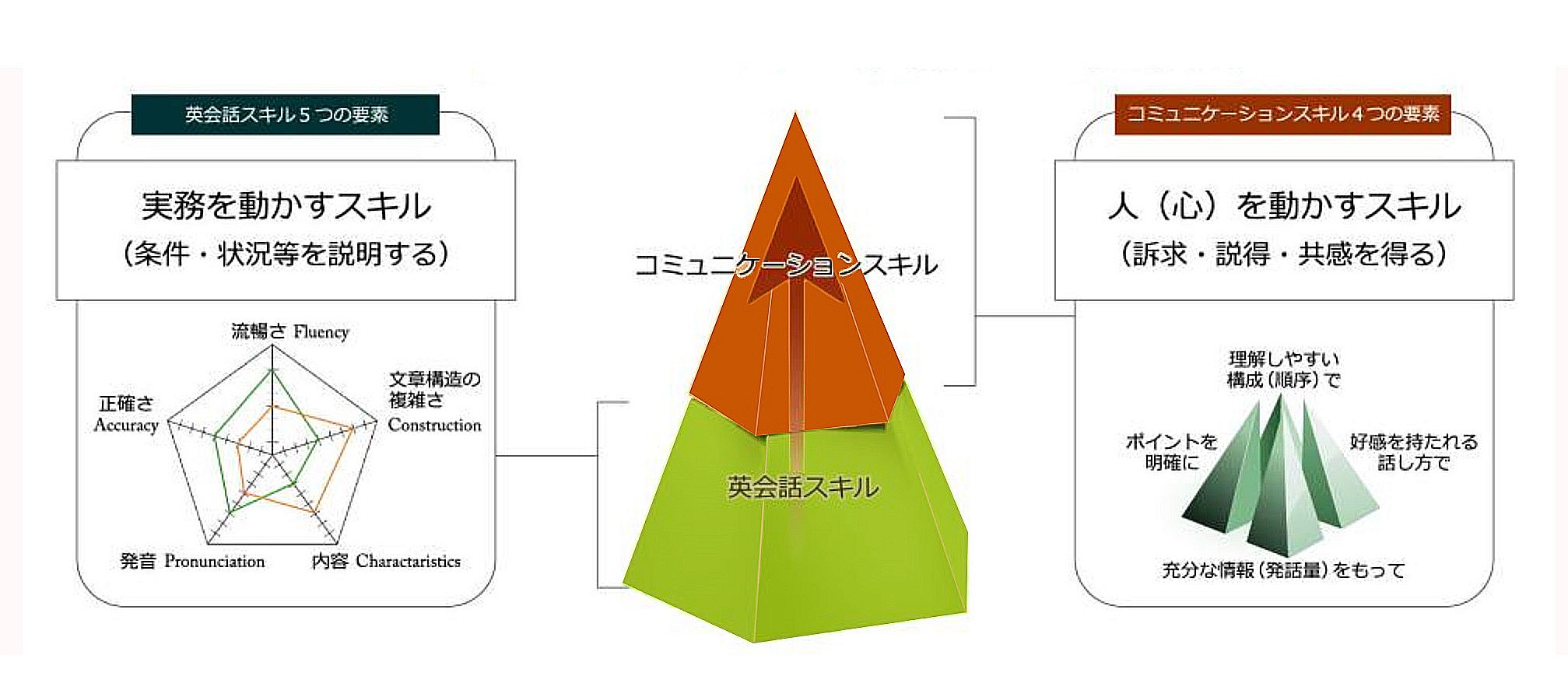会議や打ち合わせでの状況報告や提案で、原因、提案の根拠・理由なしに、説得力を持ったスピーチは出来ません。
理由を述べること、そして、それをどう表現するかは、ビジネスでとても大切なスキルです。
理由や原因を表わす表現はたくさんありますが、それぞれのニュアンスの違いを理解して、ビジネスの場で適切に使えるようにしましょう。
目次
「なぜなら~」「~なので」 を表す because, since, as の違い
 真っ先に思い浮かぶ単語といえば、because ではないでしょうか。
真っ先に思い浮かぶ単語といえば、because ではないでしょうか。
その他、類似のワードとして、since, as なども出てくるかもしれません。
これらの単語の違い、分かりますか?
まずは、because, since, asの特徴について知っておきましょう。
結果より理由、原因を重視する Because
because は、as や since より一般的で、「書く」「読む」の両方でよく使われます。理由を説くときsince や as を使ったことはない人はいても、because を使ったことが無い人は、恐らくいないでしょう。
because の、as や since との違いは、結果より「理由」「原因」の方に、より重きが置かれるという点です。
<例>
I heard that people will not buy black cats these days, because they do not look so photogenic in pictures.
黒猫はあまり買われなくなるだろうという話を聞きました。写真映えしないので。
「これから、黒猫はあまり人気がなくなるよ」と聞くと、「え、なぜ?」となり、その理由に、より興味がわくことでしょう。それを、because で説明しています。
もっと理由に重点を置きたい場合は、becauseを最初に持っていくこともあります。
<例>
Because I’m self-employed, I have to pay the full cost of my family’s health insurance.
自営業者なので、家族の保険料を全て払わなければなりません。
また、会話では、以下のようにBecause節のみで使うこともできます。
A: Didn’t you use a taxi?
B: No,
A: Why?
B: Because I didn’t have enough money in my wallet.
<注意点!>
because節のみの文章は話し言葉のみで使われ、ライティングでは、because節のみの文章はNGです。
理由より結果を重視する As と Since
一方、as と since は、理由より結果の方に重点をおきます。
Since this is your first time in Japan, I would like to invite you to visit one of our traditional temples with me, if you are free.
日本に来られるのは初めてということで、もしお時間があれば、一緒に古くからのお寺にご案内できればと思います。
As I often work in a team, my goal is to have a team that works well together and is efficient. This is important for a project to run smoothly.
チームで働くことが多いので、うまく、効率的に働けるチームを持つのが目標です。プロジェクトをスムーズに進めるのに重要なことです。
上の文では、「お寺を案内したい」ということが、下の文では「効率的に働けるチームを持ちたい」ということの方が、その理由よりも伝えたい内容です。
<注意点!>
理由付きで何かを尋ねる場合は、as と since は使えません。
〇 Are you feeling unwell because you ate too much?
× Are you feeling unwell since you ate too much?
× Are you feeling unwell as you ate too much?
理由を付けて何かを尋ねる場合は、as や since ではなく、because を使います。この点は注意しましょう!
「~のために」「~のせいで」「~なので」理由の英語表現 because of, due to, thanks toの違い
 理由や原因を説明する際は、because や since でくくられる節以外にも、because of, due to, thanks to などの句を使うことがあります。
理由や原因を説明する際は、because や since でくくられる節以外にも、because of, due to, thanks to などの句を使うことがあります。
似ているようで全然違う、これらの表現の特徴も知っておきましょう。
because of と due to の違い
because of を辞書で調べると、「~のために、~のせいで」とあります。同様に、due to は「~が原因で、~に起因して、~のせいで」と書かれており、だいたい同じような訳語がふられています。
しかし、センテンスの中に置くと、その使い方の違いが分かり易くなります。
× It is cool in Tokyo due to the typhoon coming from the Pacific.
due to は名詞のみ修飾できます。
It is cool は節であって、名詞ではないので、上の文章のようにdue toを使って、「太平洋側からくる台風」を、「涼しい」ことの理由にすることはできません。
しかし、以下ならOKです。
〇 Tokyo’s cool wave is due to the typhoon coming from the Pacific.
「東京への涼しい風」(名詞)は、「太平洋側からくる台風」のためだと説明されます。
このように、due to は名詞にのみ掛かります。due to =「~によるもの」と訳すと分かり易いかもしれません。
他の言葉で言い換えるとすれば、resulting from や caused by が適当です。
〇 Tokyo’s cool wave is resulting from the typhoon coming from the Pacific.
〇 Tokyo’s cool wave is caused by the typhoon coming from the Pacific.
一方、because of は、以下のように、節全体を修飾します。
〇 It is cool in Tokyo because of the typhoon coming from Pacific.
「東京が涼しい」という節を、「太平洋側からくる台風」のためとして説明しています。
他の表現で言い換えるとすれば、as a result of などが適当です。
<注意点!>
ただし、会話の中ではこのルールに従わず、because of とdue to を混ぜて使うことがしばしばあります。because of を一般的に使い、少し硬い場面ではdue to を使うという、使い分けをされる場合もあります。
しかしライティングでは、due to と because of をしっかり使い分けることが求められますので、上に書いた違いを理解し、留意しておきましょう。
Thanks to の使い方
because of や due to がニュートラルであるのに対し、Thanks to は、ポジティブな意味で使われます。
辞書で調べた場合も、「~のおかげで」というように、感謝の気持ちが感じられるものになっています。
I think the Japanese economy is in pretty good shape thanks to the weaker Yen.
円安のおかげで、日本経済は調子が良いと思います。
Thanks to the internet, we can get information quickly and easily.
インターネットのおかげで、早く簡単に情報を得られます。
その他、理由表す英語フレーズ
Owing to
Owing to the market demand, we have increased production.
市場の需要があるので、我々は生産を増やしました。
On account of
The meeting was postponed on account of the CEO’s absence.
CEOの不在のため、会議は延期されました。
Given that
Given that the project is behind schedule, we need to allocate more resources.
プロジェクトが遅れているので、リソースを増やす必要があります。
For
For economic reasons, the company decided to downsize.
経済的な理由で、会社は縮小を決定しました。
Resulting from
The delay is resulting from unforeseen technical issues.
予期しない技術的な問題があるので、遅れが生じています。
As a consequence of
As a consequence of the merger, some employees were relocated.
合併があるので、一部の従業員が配置転換されました。
理由や原因の英語表現を巧く使って説得力をアップしよう!
 because や since, as 以外にも、理由を述べる表現はたくさんあります。
because や since, as 以外にも、理由を述べる表現はたくさんあります。
特に、報告や提案の根拠となる理由にフォーカスしたい場合、理由に注意を向けさせる表現を選ぶと、効果的です。
いくつかご紹介します。
〇〇個の理由があります – There are __ reasons (why)
There are two main reasons why I generally stay away from them.
普段、そこに近づかない大きな理由が2つあります。
I do think that the number of smokers is decreasing in my country. There are several reasons that can be attributed to the decrease.
日本では、喫煙者の数は減っていると確かに思います。この減少を招いた幾つかの理由があります。
「2つの理由がある。」「いくつかの理由がある。」
こう言われると、その理由が列挙されるのを自然と期待して、そちらに注意が向けられますね。
one reason is __(一つの理由として挙げられるのは)
こちらも、理由に注意が向く表現です。
One reason is that people simply don’t have the time to spend on this sort of traditional custom.
一つの理由としては、単に、みんなこういった昔ながらの習慣に費やす時間が無いのです。
I think that one reason is the cost of raising children.
一つの理由は、子育てかかる費用だと思います。
One of the reasons that/why(~の理由の一つは、)
いくつかある理由の一つとして挙げるのに使われます。
One of the reasons that people can’t quit smoking is because it is highly addictive.
喫煙を止められない理由の一つは、非常に常習性が高いためです。
One of the reasons why they come to Japan is to visit an onsen.
彼らが日本に来る理由の一つが、温泉です。
the biggest reason is __(最大の理由は)
いくつかある理由の中で、一番大きな原因を述べます。
The biggest reason is that people are reluctant to believe that climate change is happening.
なかなか人々が気候変動が起きていることを認めたがらないことが、一番大きな理由でしょう。
the reason why__ is (because)(〇〇の理由は~である)
The reason why many companies are expanding their business is to keep pace with diverse consumer demands.
企業がビジネスの幅を拡大させているのは、多様化する消費者の需要に合わせるためです。
The reason why I have a hybrid car is because it’s cheaper to run than a gasoline fueled car.
ハイブリッド車に乗っている理由は、ガソリン車より燃費が良いからです。
One reason why I am supporting this idea has to do with its environmental benefits
この案を支持する理由は、環境良いからです。
The biggest reason why so many Asian people end up in Japan is that they are proximate to us, and the travel cost isn’t all that high.
アジアの人達が日本に来る一番大きな理由は、近いことと、旅費がそう高くないためです。
(reason) why/ the reason for __(なぜ~なのか)
Employers won’t disclose (the reason) why they didn’t hire you.
雇用主はあなたを雇わなかった理由を明らかにしないでしょう。
AI will only have the ability to calculate, but it will never possess the reason for human decision-making.
AIは計算能力はあるでしょうが、意思決定をする理由を持つことはないと思います。
I have a reason for __(私が~する理由は、)
there is a reason/there are reasonsや、the reason why などでは、客観的に理由を述べますが、人+have で、その人が持つ特別の理由となります。
I have a personal reason for hoping Britain would vote not to leave because our company has a big plant in the UK so leaving the EU is a critical issue for us.
イギリスに離脱しない方へ投票して欲しい個人的な理由があります。会社がUKに大きなプラントを持っていて、EU離脱はうちの会社にとって大きな問題なのです。
He may have a reason for that, but he didn’t explain the details as to why.
それには彼なりの理由があったのでしょうが、なぜなのかは教えてくれませんでした。
give/provide a reason(~する理由は)
こちらは、give や provide を付けて、「理由を述べる」「理由を明かす」という表現になります。
Japanese clients seldom give reasons as to why they refuse our offers.
日本の顧客は、なぜオファーを断るのか理由を告げることはあまりしません。
It’s not necessary to provide a reason for your absence.
欠席の理由を言う必要はありません。
for different/various reasons(様々な理由から)
2つめの例文のように、理由を列挙できると、聞き手も納得しやすいですね。
There are people who have withdrawn from society for different reasons and for varying amounts of time.
様々な理由から、期間の長短はありますが、社会から引きこもる人が居ます。
The top washing load machines have regained sales for various reasons; they are compact, their capacity is greater than a front load machine and they are less expensive.
縦型洗濯機は様々な理由から人気を回復してきています。小さく、ドラム式より容量が大きく、低価格です。
simply/just because(単に~という理由から)
for different/various reasonsは、いくつかの理由が考えられる場合に使いましたが、こちらの表現では、たった一つの理由について言及します。
In America, 70 percent of people take supplements simply because the cost of going to the hospital or buying medicine is expensive, compared to the situation in Japan.
日本の状況と違い、アメリカでは、病院に行ったり薬を買ったりすると高くつくからという理由で、70%の人がサプリメントを摂っています。
I’m sorry but in this instance, we will not be able to reach an agreement, just because other suppliers offer a better deal.
申し訳ありませんが、この件に関しては、他の業者が出した条件の方が良いため、契約には至りません。
__ is a factor that __(〇〇が~の理由(要因)だ)
factor (要因、原因の意)を使って、理由の説明することもできます。
Lack of connection to community, a modern problem created by our busy and mobile lifestyles, may also be a factor that contributes to this apathy.
せわしく動き回る、現代のライフスタイルが抱える問題として、コミュニティと疎遠となっていることも、恐らくこの無関心を生じさせる要因となっているかもしれません。
it’s possible that __(~と言えるかもしれない)
原因の可能性を示唆しています。
It’s also possible that the notion of patriotism is not as important to younger generations, especially considering how much more aware and connected they are to the global community than previous generations were.
また、若い世代の人達は、上の世代よりも、国際社会の動きに敏感で、そこに強い繋がりを感じているのに比べ、自分の国を想う気持ちについてはそれほど重要視していないとも言えるかもしれません。
it causes / it can cause(~の原因となる)
cause を使って、原因と結果を示しています。
It causes inefficient and non-productive work.
そのせいで、仕事が非効率的かつ非生産的になってしまいます。
I think that the purpose of working is for the benefit of living, and too much working time causes physical or mental illness.
仕事の目的は生活を豊かにすることですが、長時間の労働は肉体的、精神的な病気を引き起こします。
Everyone knows that smoking is not good for you, that it can cause cancer, heart disease and many other terrible illnesses.
喫煙が体に良くないもので、ガンや心臓病、他の恐ろしい病気も起こすことを、みんな知っています。
__ have/has to do with __(〇〇は~に関係がある)
__ have to do with __ で、〇〇と~が関係しているという表現ですが、結果と原因を、関係で繋ぐことで、理由を説明することもできます。
The increase in empty buildings has to do with the decline of the birthrate in Japan.
空き家の増加は、日本の出生率の低下に関係しています。
出生率の低下が、空き家の増加をもたらしたという関係になっています。
まとめ
人の理解や納得において、「理由」は大きな役割を果たします。
是非、お仕事や英会話レッスンの中で色々な表現にトライして、より相手の心に届きやすい表現・会話術を模索していきましょう。
ネイティブ講師による、オンライン英会話の@English(アットイングリッシュ)では、この記事で述べたようなビジネスの場で使える英会話をトレーニングし、身に付けることができます。
無料の体験レッスンもご用意しておりますので、ぜひ一度お試しください。
お読み頂きまして、ありがとうございました。






 講師は全員ネイティブ
講師は全員ネイティブ










